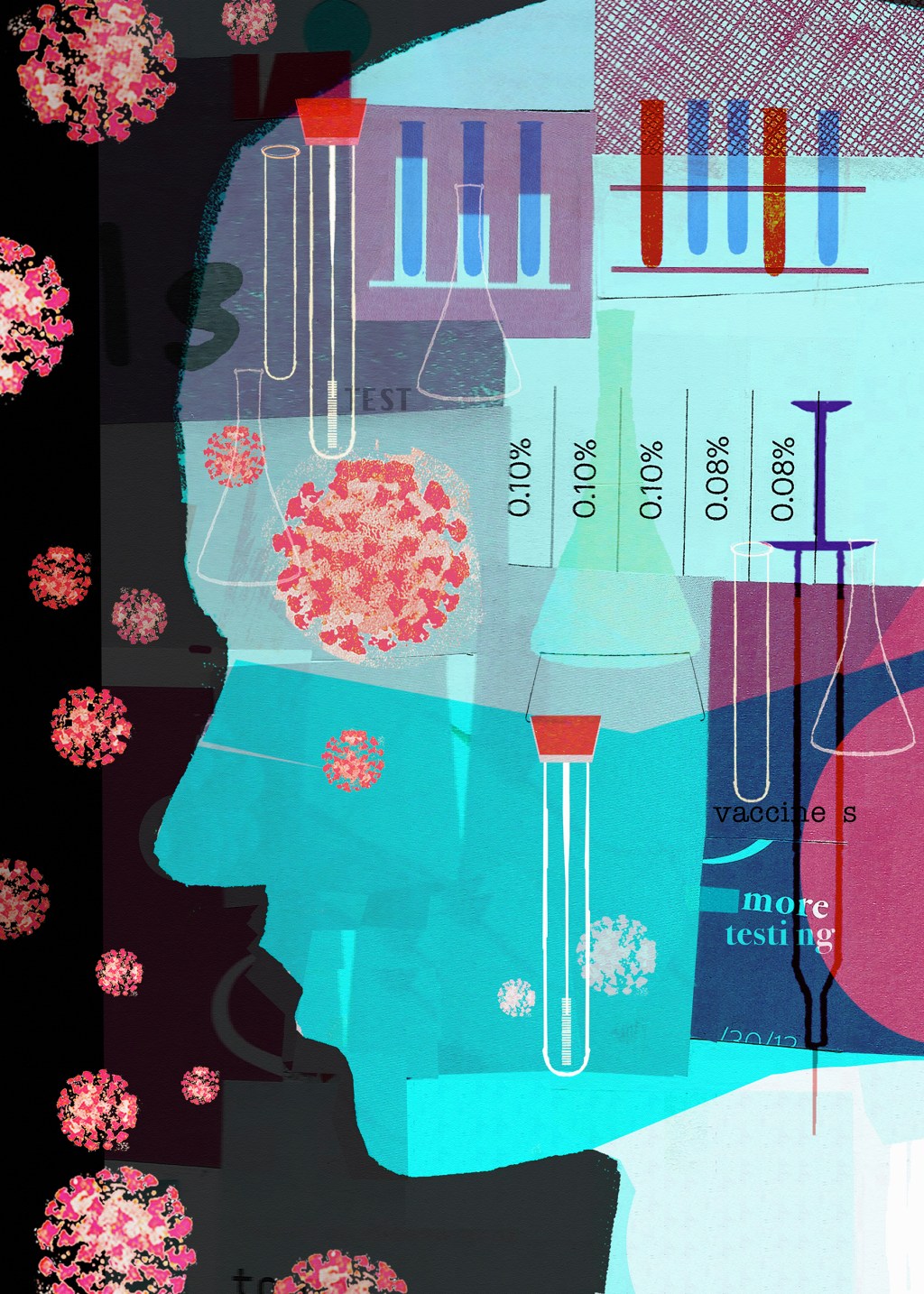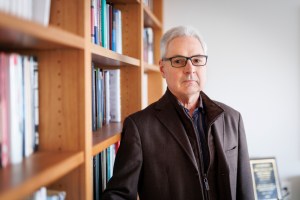The Coronavirus Update
-
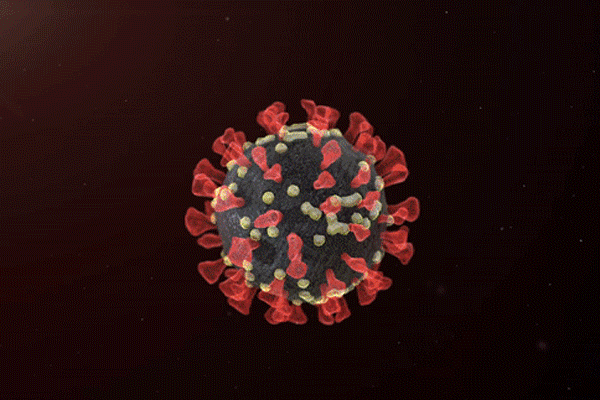 Science & Tech
Science & TechStaying ahead of virus mutations
EVEscape uses evolutionary and biological information to predict how a virus could change to escape the immune system.
-
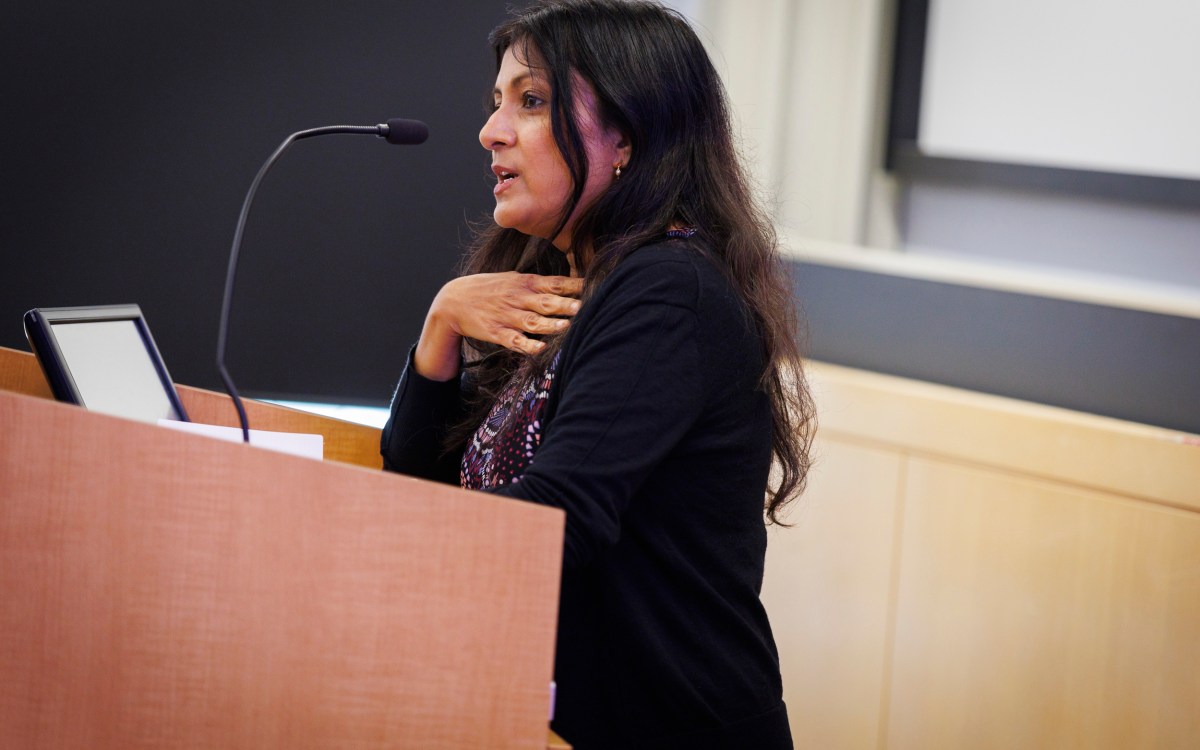 Nation & World
Nation & WorldHow federal missteps opened door to COVID misinformation
Anti-vaxxers, others benefited from mistrust engendered by early stumbles in messaging about virus, prevention, says New York Times health and science reporter Apoorva Mandavilli.
-
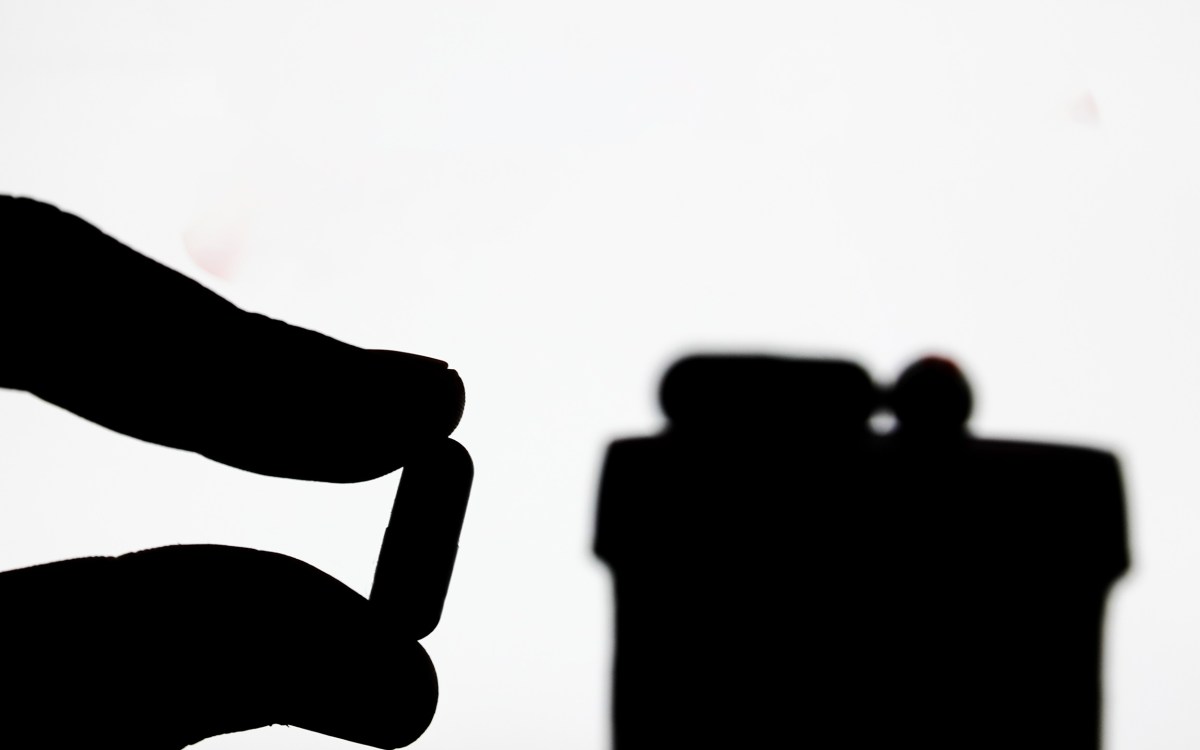 Science & Tech
Science & TechA COVID cure worse than the disease?
Some worry a treatment that kills SARS-CoV-2 by helping it mutate could spawn a super virus. New research weighs in on its “evolutionary safety.”
-
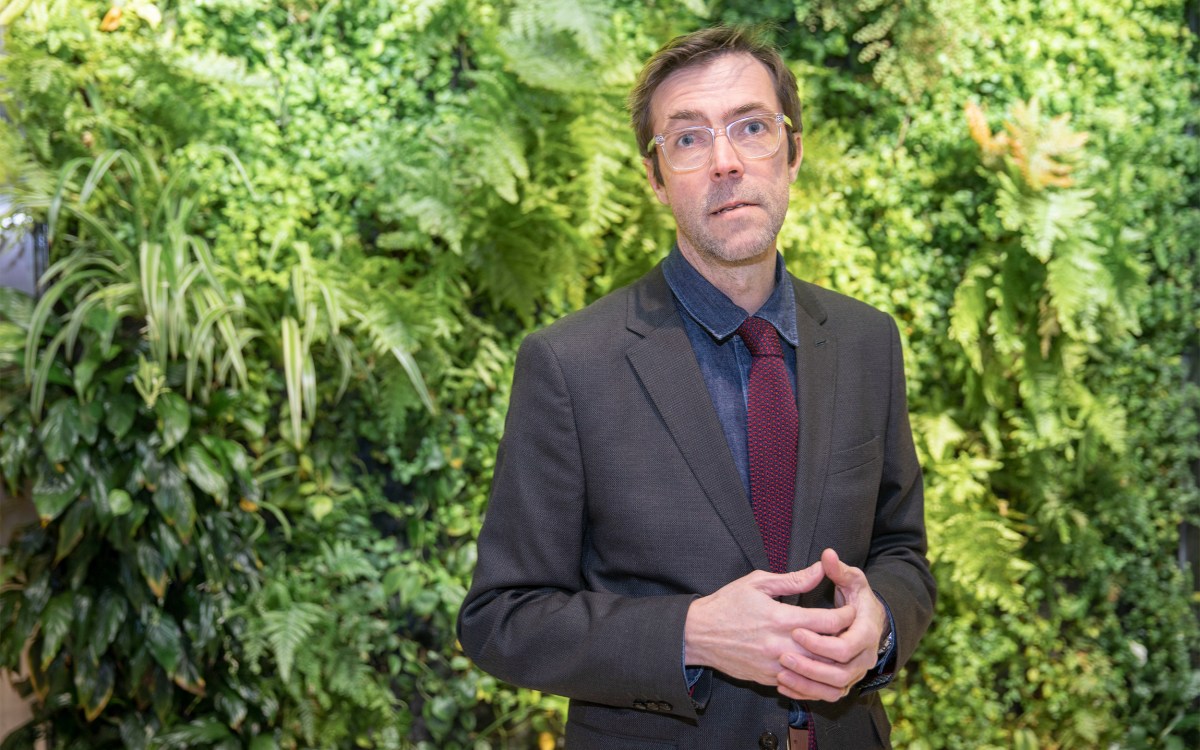 Health
HealthHow durable is your immunity?
William Hanage, an associate professor of epidemiology, talks about hybrid protection, vulnerability of older people, and the wisdom of Taylor Swift.
-
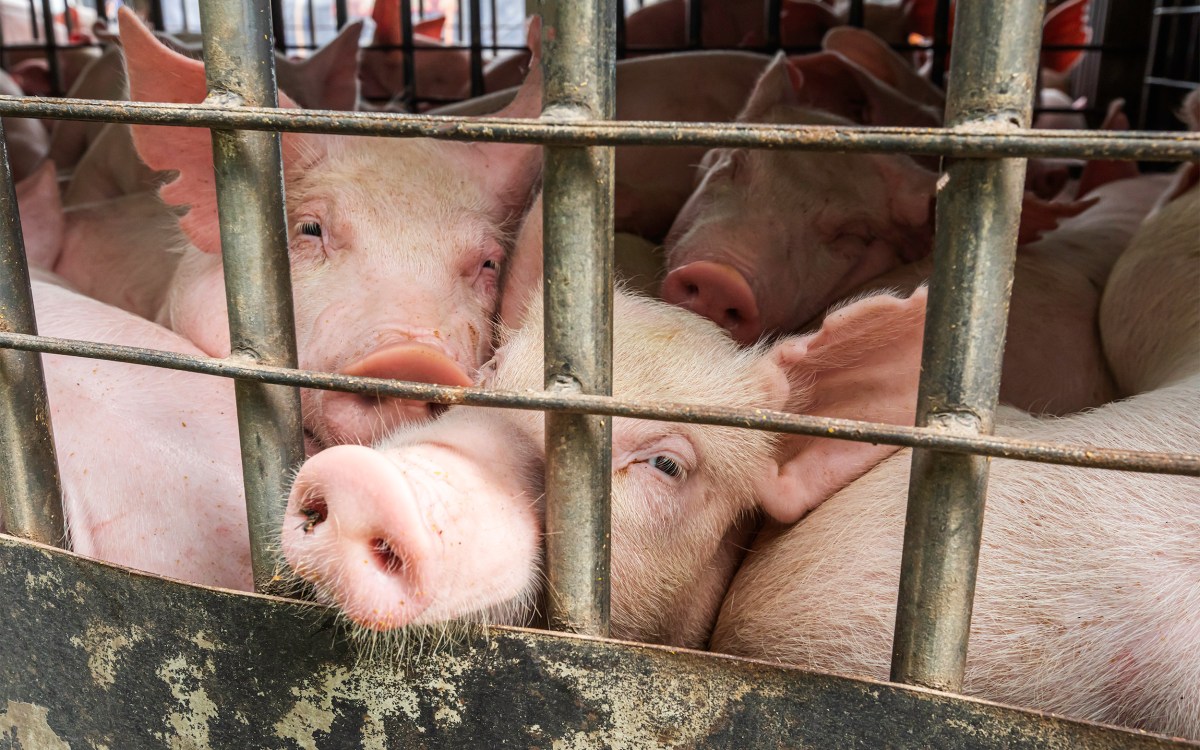 Health
HealthCOVID-19 came from animals. Why aren’t we working to prevent new scourge?
A new study suggests we are as vulnerable as ever to the emergence of another virus as deadly, or even more so, than COVID-19.
-
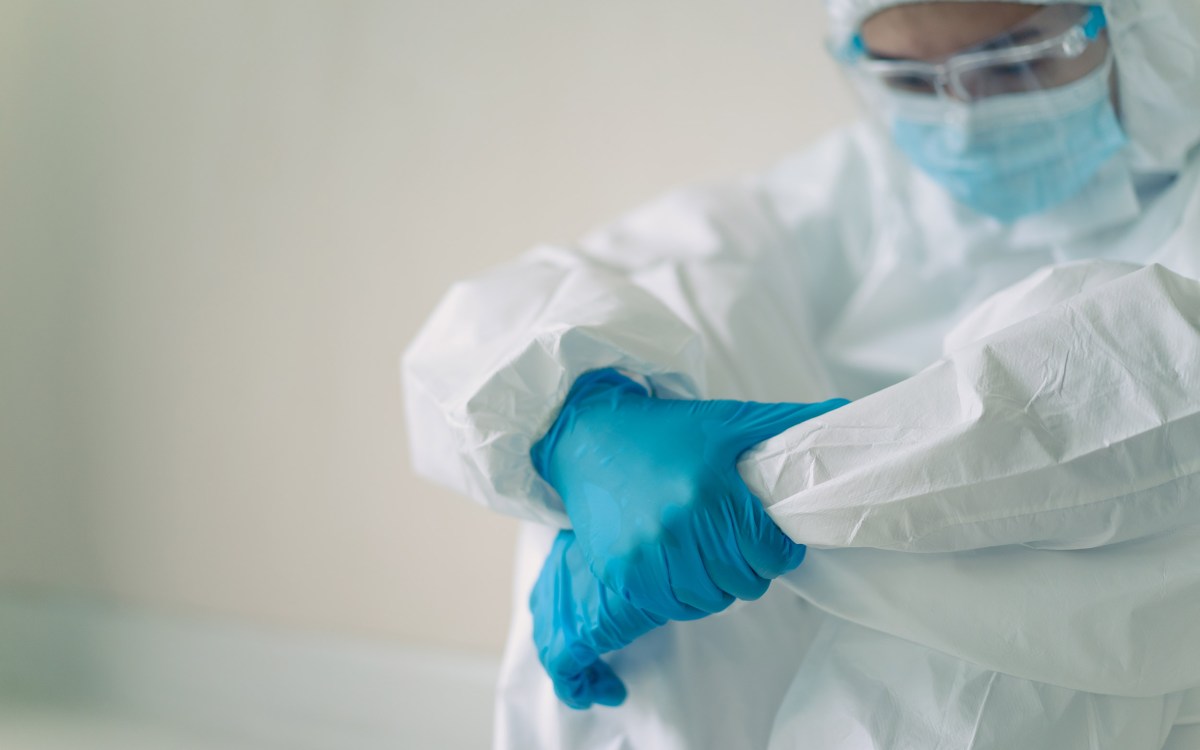 Health
HealthDoctors not the only ones feeling burned out
Through a national survey, researchers identified prevalent work overload, burnout, and intent to leave health care professions among nurses, clinical staff, and non-clinical staff, including housekeeping, administrative staff, lab technicians, and food service workers.
-
One shot at protection
The COVID-19 vaccine that requires just one shot has been shown to generate a robust immune responses against variants.
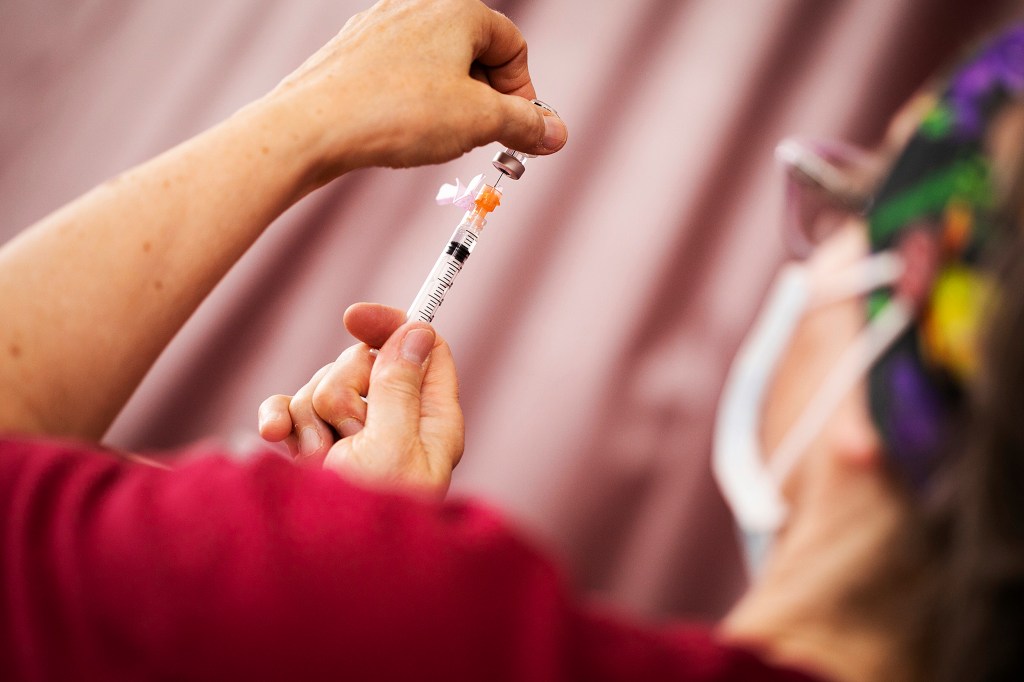
-
Study suggests new lessons on COVID-19 and mass incarceration
Results of a new Harvard paper are offering lessons on pandemic preparedness and providing another argument against mass incarceration.
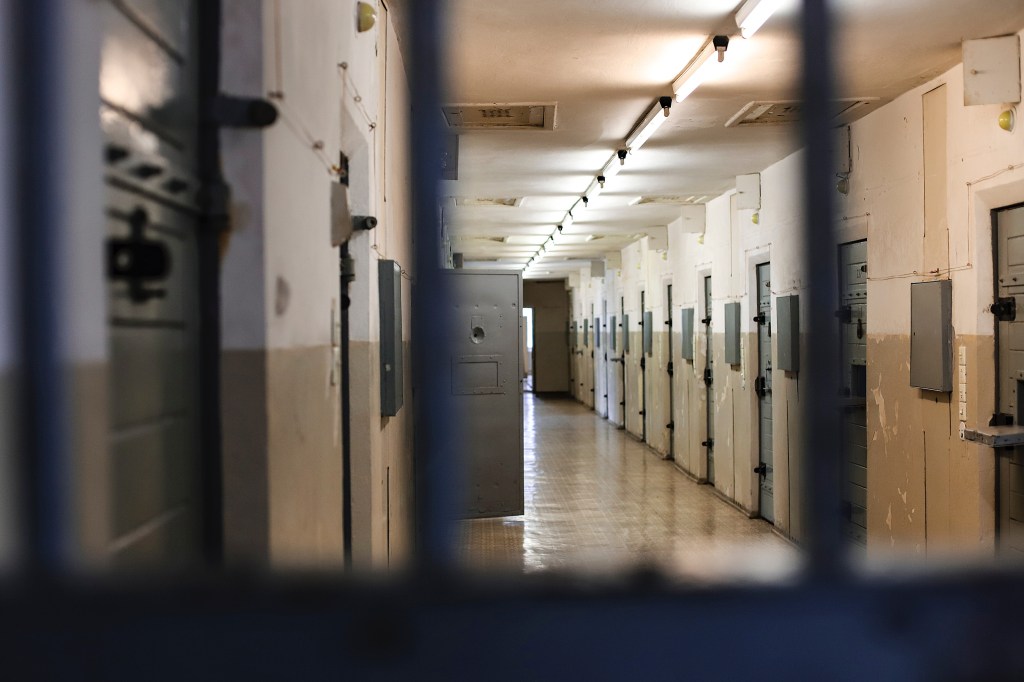
-
What the easing of Mass. COVID restrictions means for the University
The Gazette spoke with Giang Nguyen, Harvard University Health Services’ executive director, and Bill VanSchalkwyk, the University’s managing director of Environmental Health and Safety, to learn more about what Gov. Baker’s announcement means for the Harvard community.
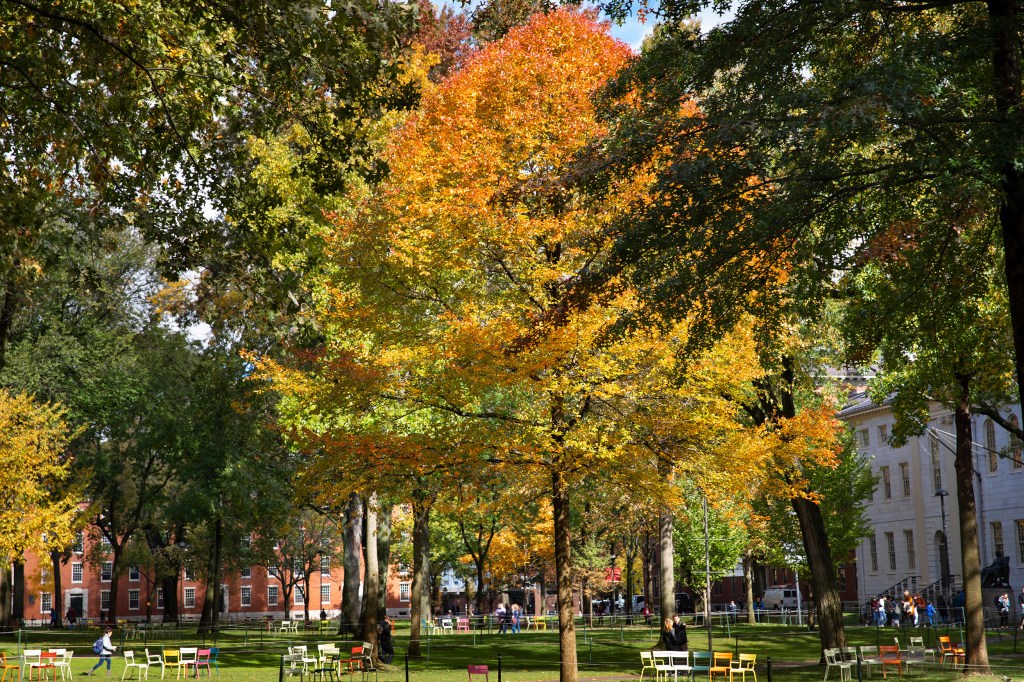
-
Tracking progression of disease through internet searches for symptoms
A College senior’s research project has shown a way to more quickly understand the characteristics of emerging diseases, by examining global internet searches for symptoms.
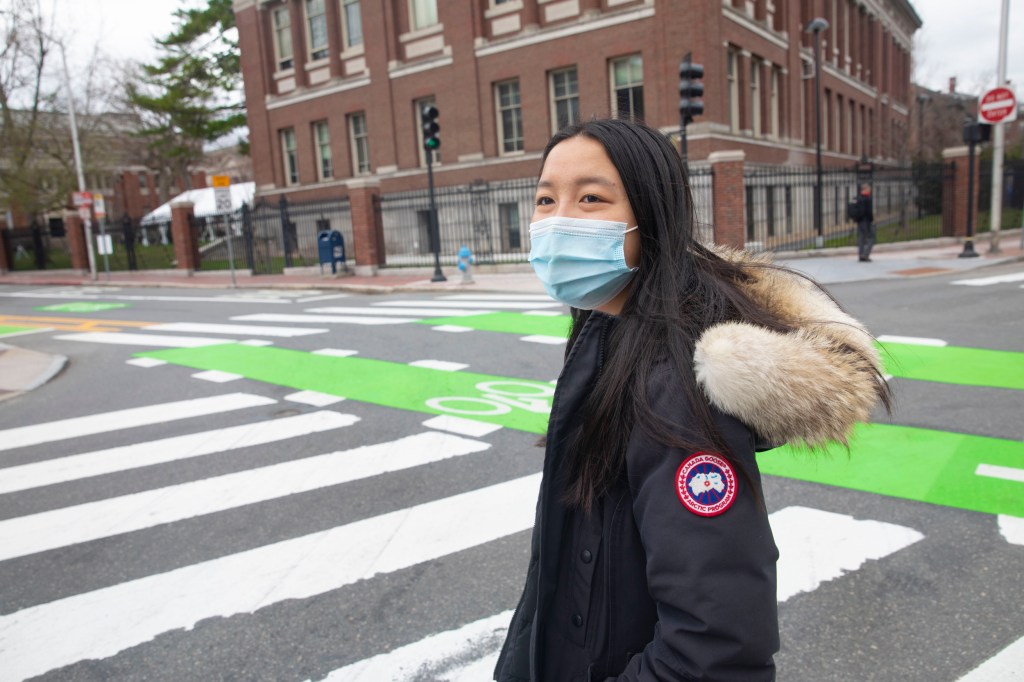
-
Daily walks? Baking? Mindfulness? Which pandemic changes are keepers?
The Gazette asked members of the Harvard community what habits they developed during the pandemic and how they plan to keep them after the pandemic is over.
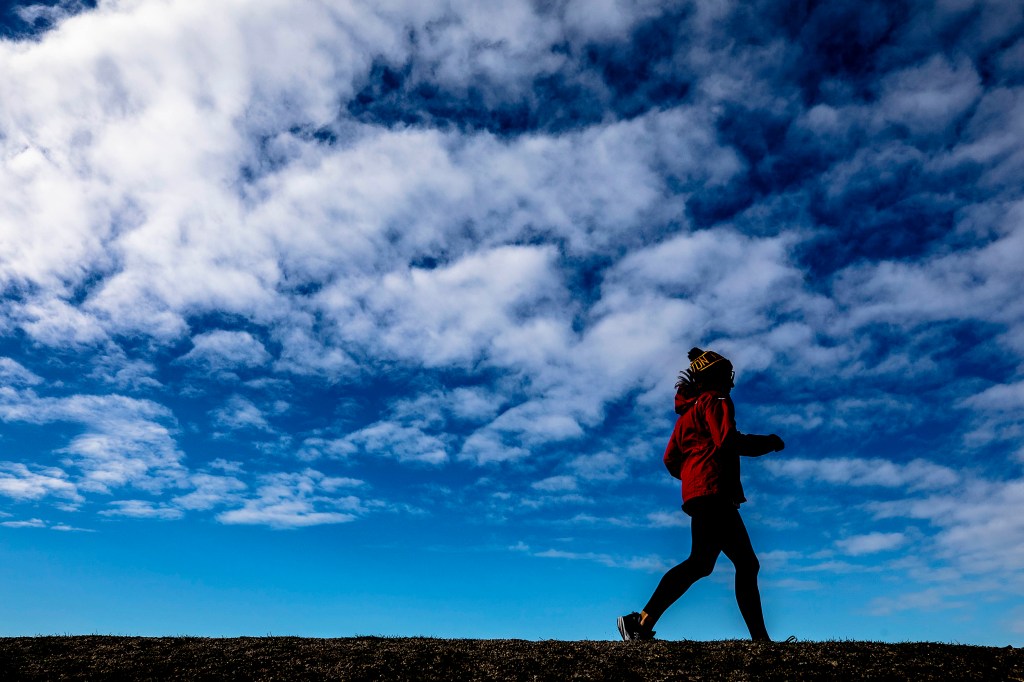
-
High-speed internet at a crossroads
Jim Waldo assesses how the internet fared during the pandemic and how well it stood up to huge shifts of work, education, and commerce online.
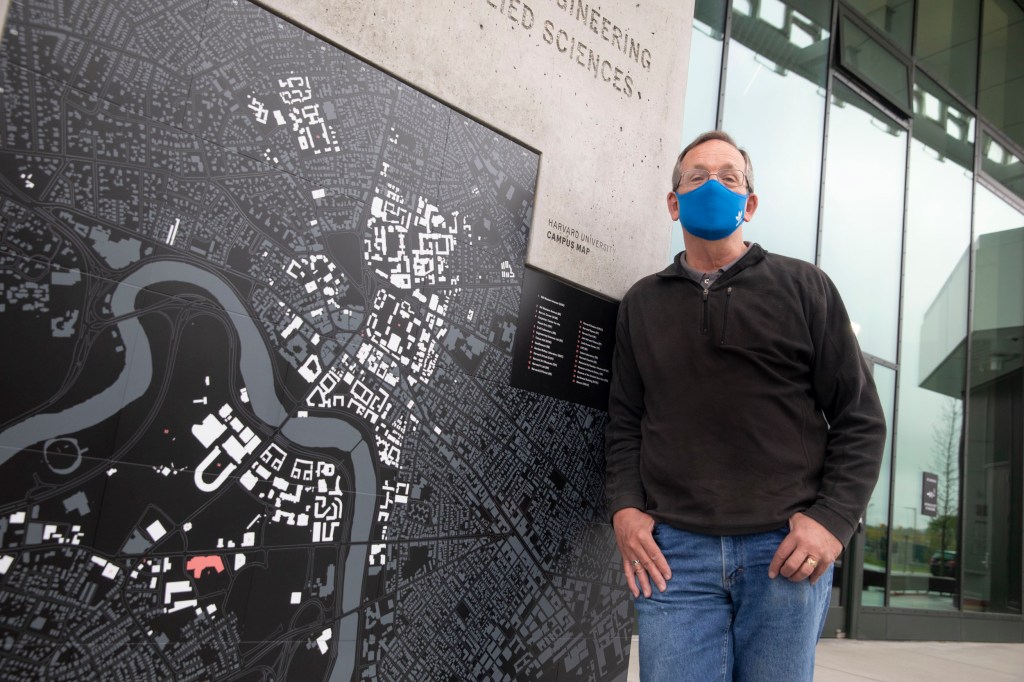
-
‘In India, anything and everything is a super-spreader event’
As COVID-19 cases in India soar and a new variant is identified, Harvard Chan School’s S.V. Subramanian offers some observations.
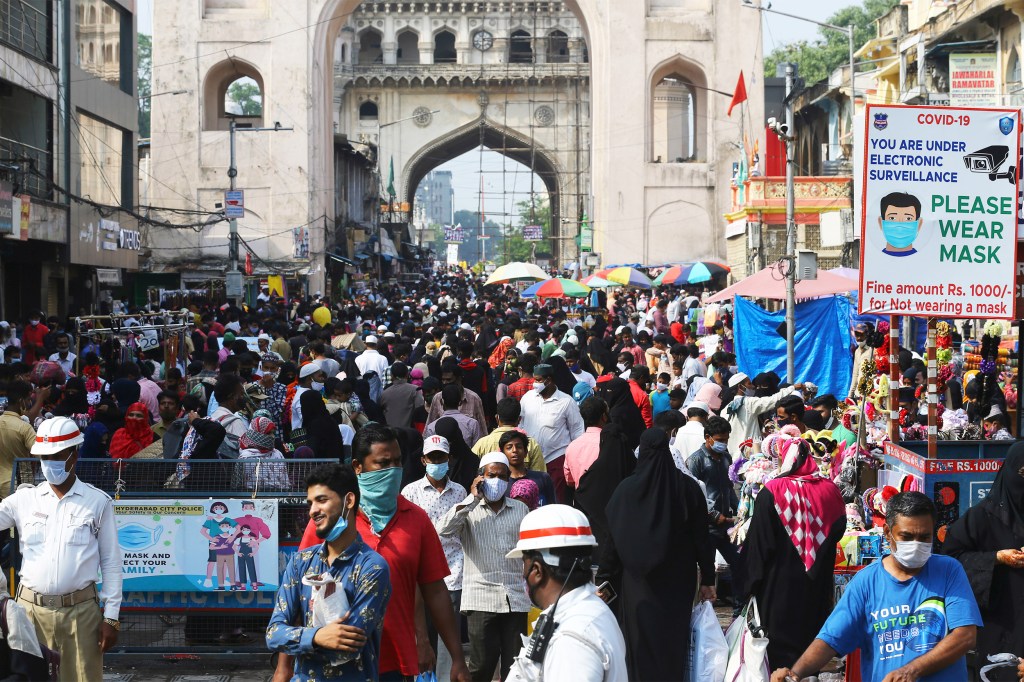
-
When you dream of feeling naked in public — without a mask
The data gathered by Deirdre Barrett shines a light on how our subconscious is grappling with a time like no other.
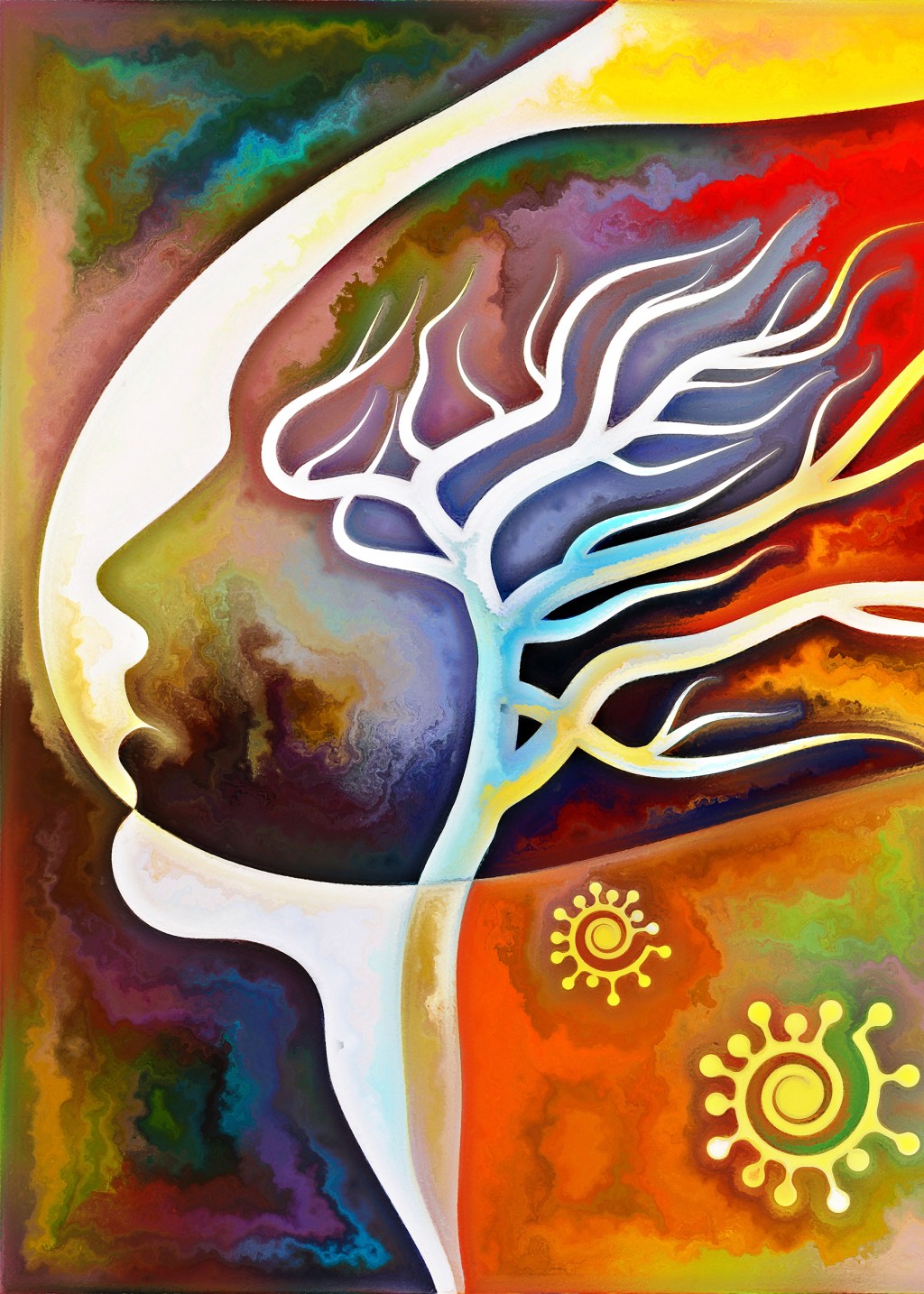
-
Why some die, some survive when equally ill from COVID-19
Researchers have identified a protein signature that may help answer the question, “Why do some patients die from COVID-19, while others — who appear to be just as ill — survive?”
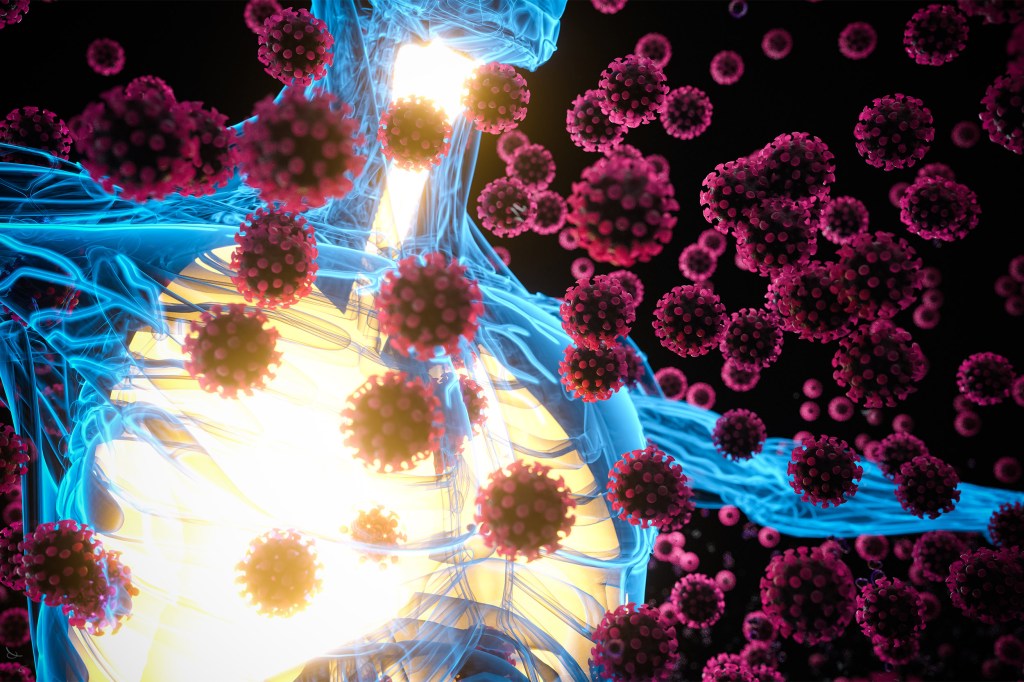
-
Human organ chips enable rapid drug repurposing for COVID-19
A Wyss Institute-led collaboration has used the institute’s organ-on-a-chip technology to identify the antimalarial drug amodiaquine as a potent inhibitor of infection with SARS-CoV-2, the virus that causes COVID-19.
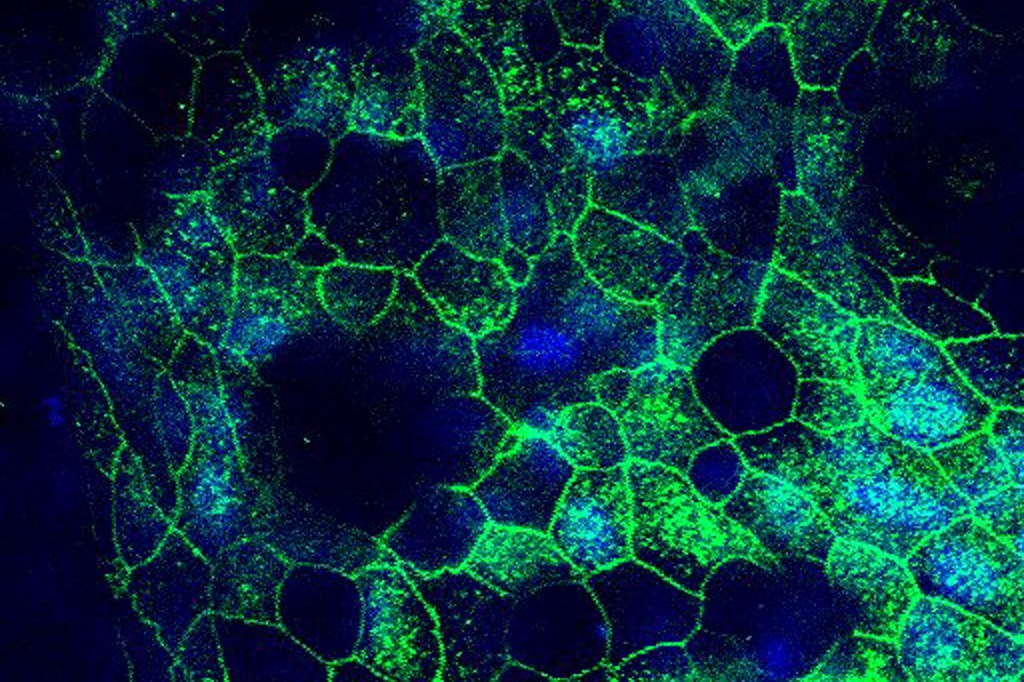
-
Why the COVID-19 outbreak in Brazil has become a humanitarian crisis
Marcia de Castro, Andelot Professor of Demography at Harvard T.H. Chan School of Public Health, discusses the COVID-19 crisis in Brazil.
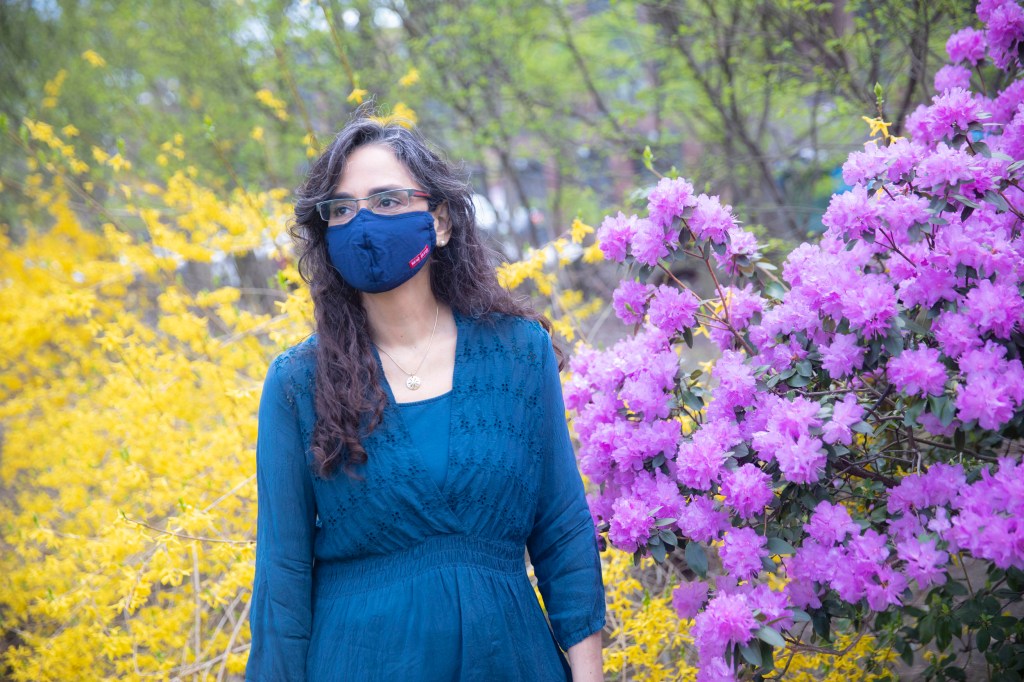
-
‘Very strong degree of normality’ likely by year’s end
Though the so-far-successful U.S. vaccination drive is likely to deliver an approximation of normal life by year’s end, Anthony Fauci and a panel of heath care experts cautioned that the global battle against COVID-19 is far from won.
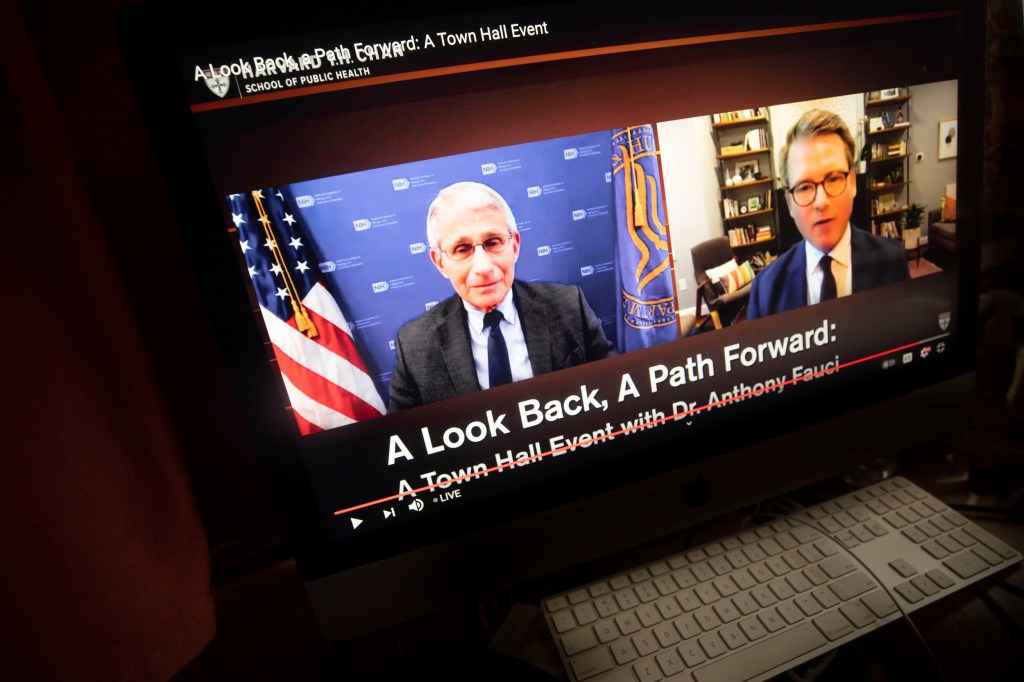
-
Pandemic from the rear-view mirror of an ambulance
The pandemic sent Jessica Miller ’21 home to West Virginia, where she found herself coping with remote classes while also helping her community through her work as an EMT. It helped her stay connected, she says.
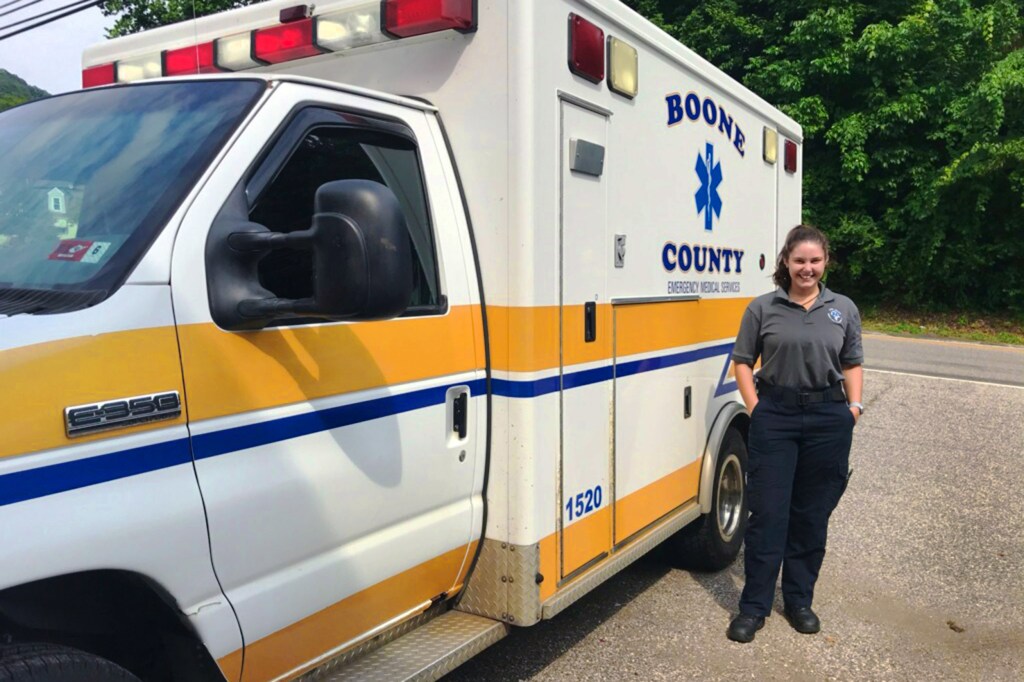
-
My grandpa’s 100 hats
Shannon Freyer, an animal-care technician in Harvard’s Department of Stem Cell and Regenerative Biology, shares stories about her grandfather, who died on his 86th birthday due to COVID-19.
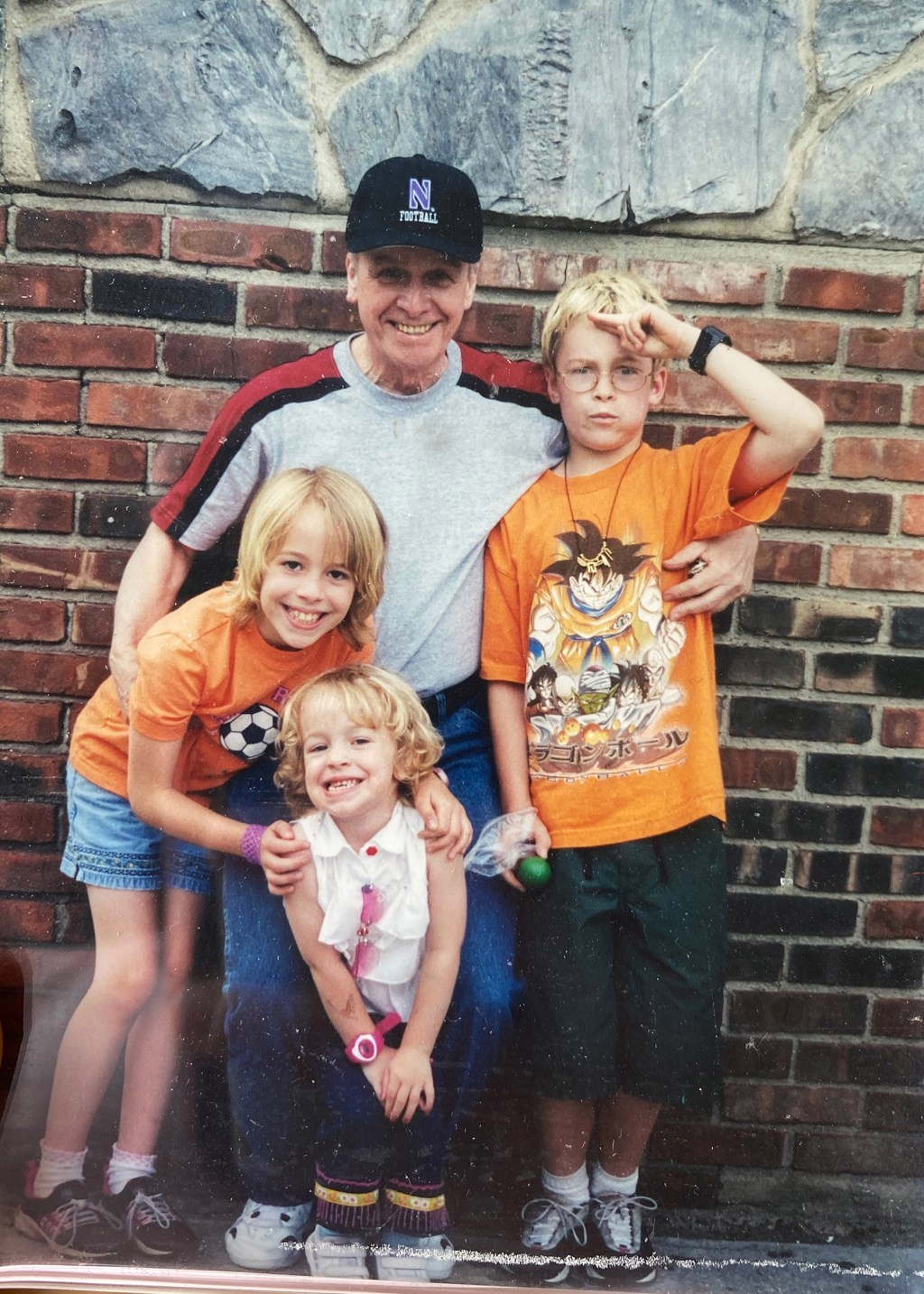
-
A year of ‘never off’
As director of the Harvard Healthy Buildings Program at Harvard T.H. Chan School of Public Health, Joseph G. Allen offers special insight on how the pandemic affected him, his work, and his family.
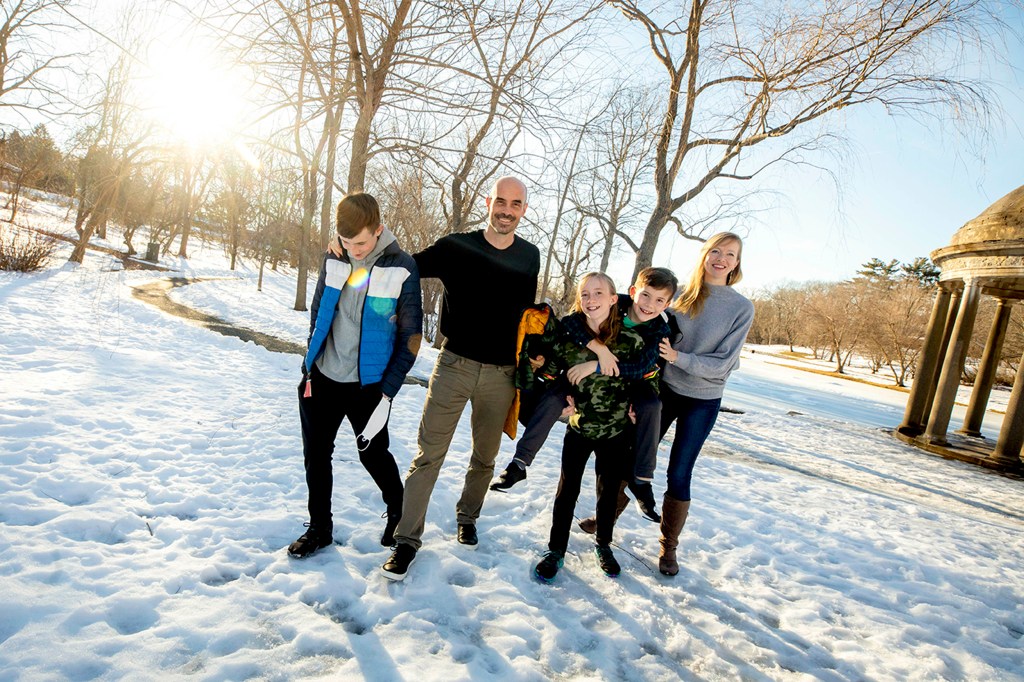
-
A teacher for 40 years and a neighborhood ‘den mother’
Ronald Chandler remembers his mother, Carol Marie Chandler.
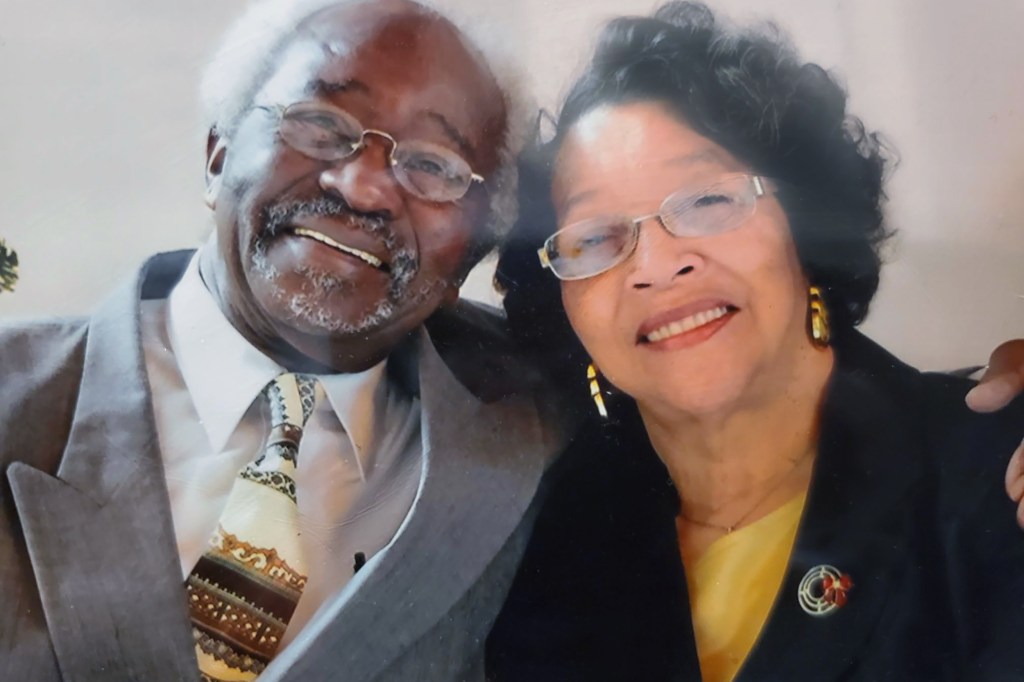
-
A pandemic that endures for COVID long-haulers
The health care system is seeing more “long COVID” patients, those whose often mild initial illness is followed up by months of severe, sometimes debilitating symptoms.
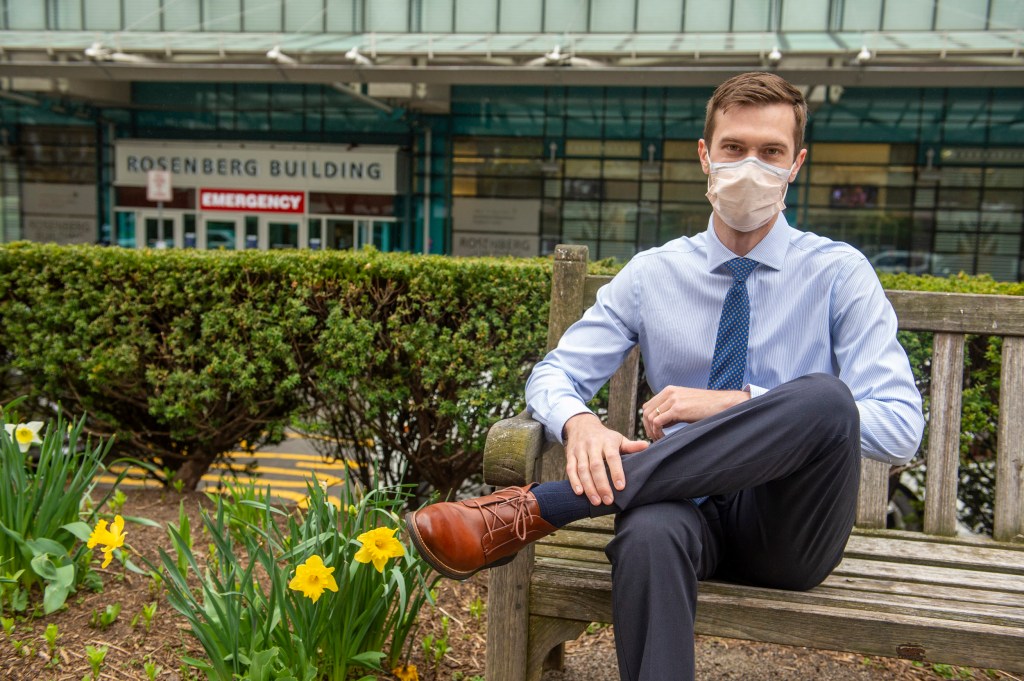
-
‘The full COVID-19 experience’
Gazette senior science writer Alvin Powell shares his view on the complexities of dealing with death amid pandemic, coupled with a profile of his colorful, fiercely independent, oft-married, world traveler mom who succumbed to COVID-19 last spring.
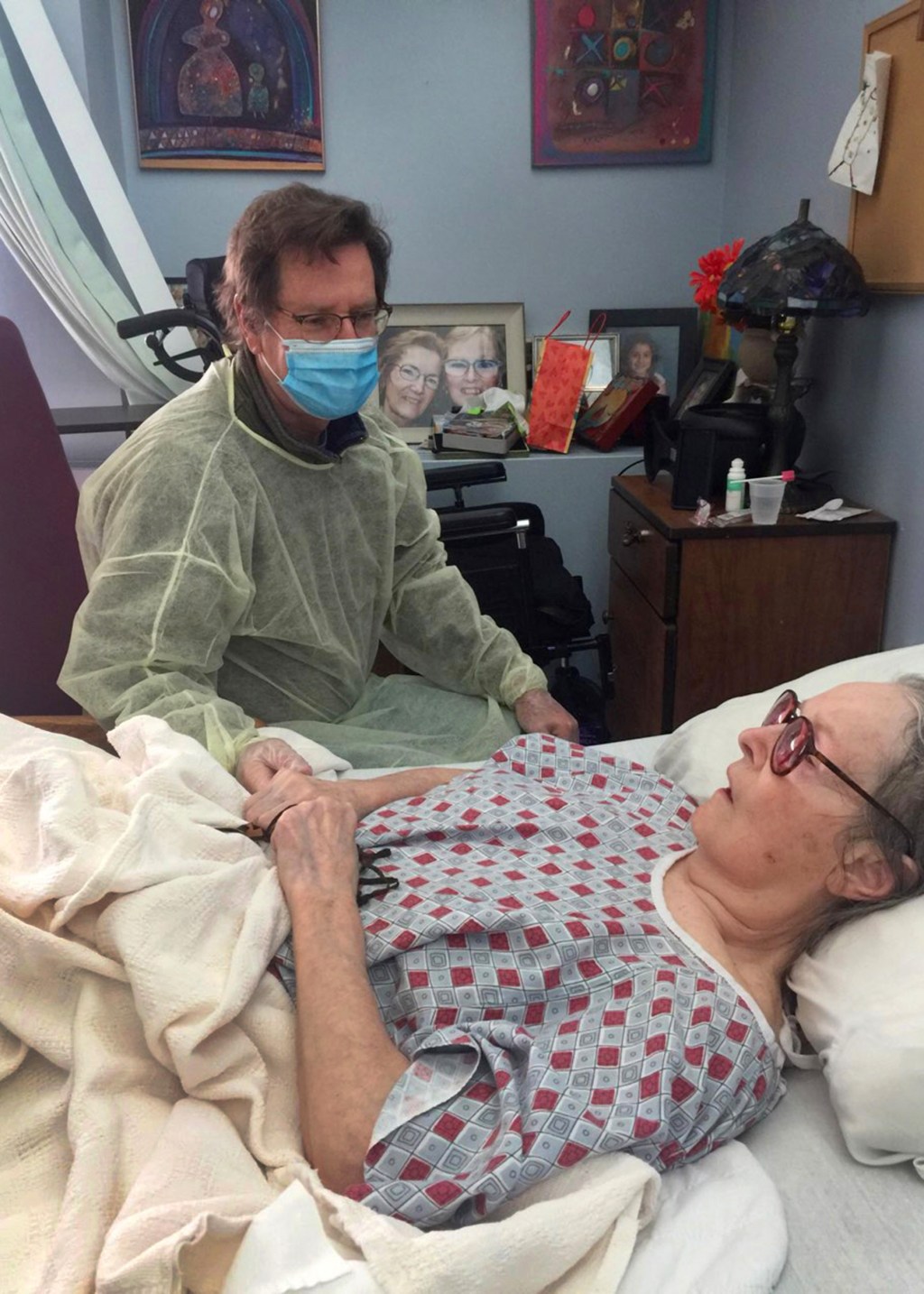
-
Approval of at-home tests releases a powerful pandemic-fighting weapon
FDA approval of two over-the-counter rapid antigen tests promises to transform the testing landscape around COVID-19, lowering cost and giving the certainty of knowing when you’re infected to the individual, a Harvard epidemiologist said.
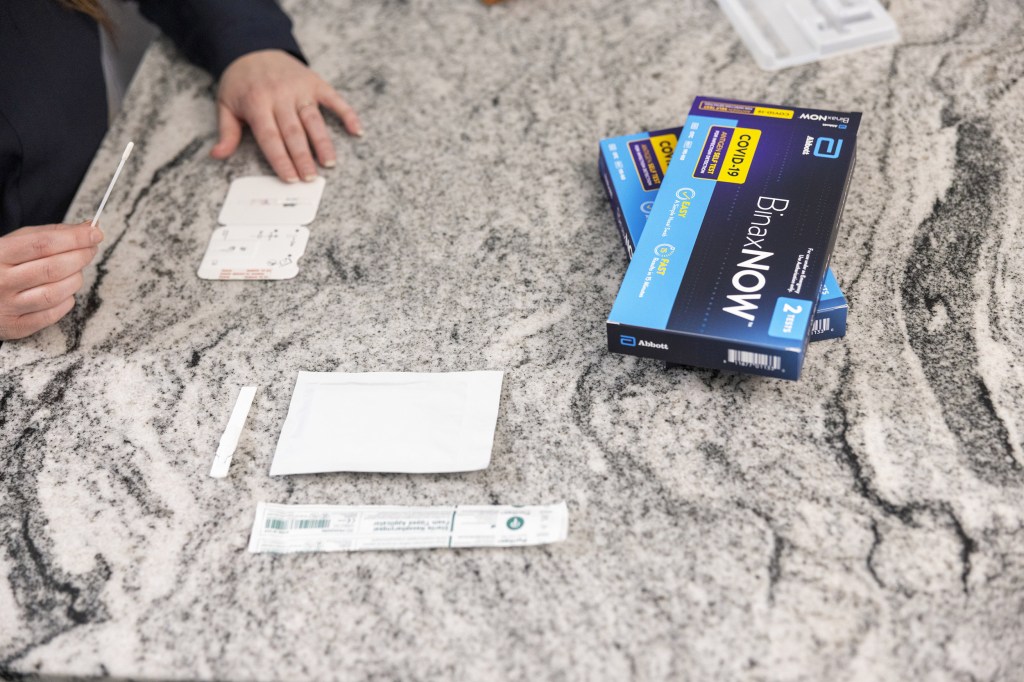
-
A table set for two
Kathy Santoro, director of HR Programs and Operations for the Faculty of Arts and Sciences, remembers time spent with her mother before losing her to COVID-19.
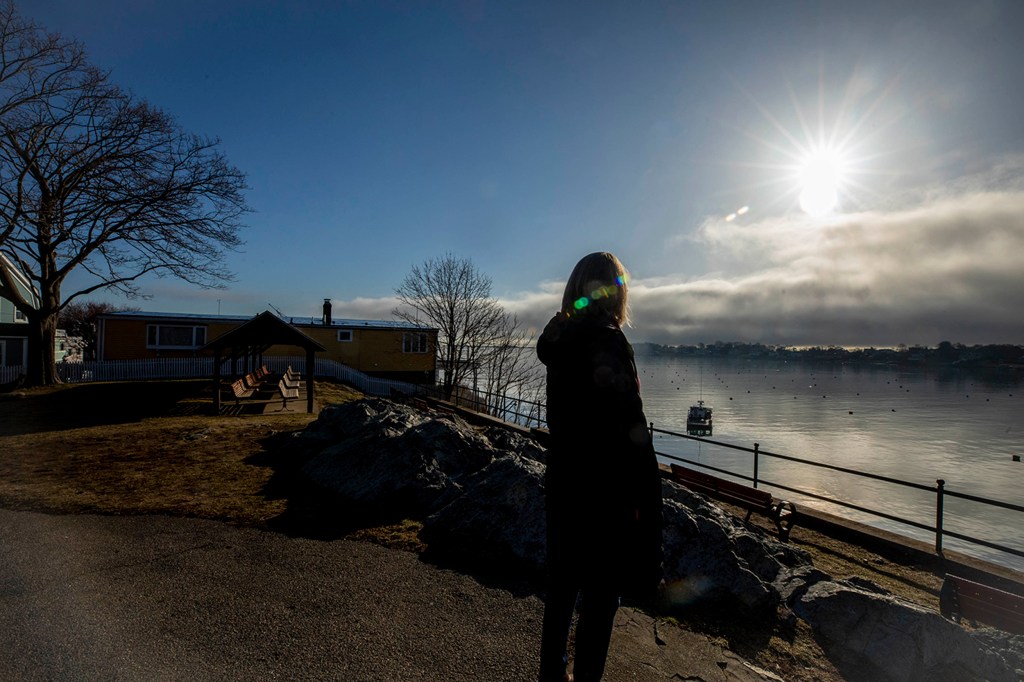
-
Post-pandemic challenges for schools
Bridget Long, dean of the Harvard Graduate School of Education, discusses the impact of the COVID-19 crisis in the field of education.
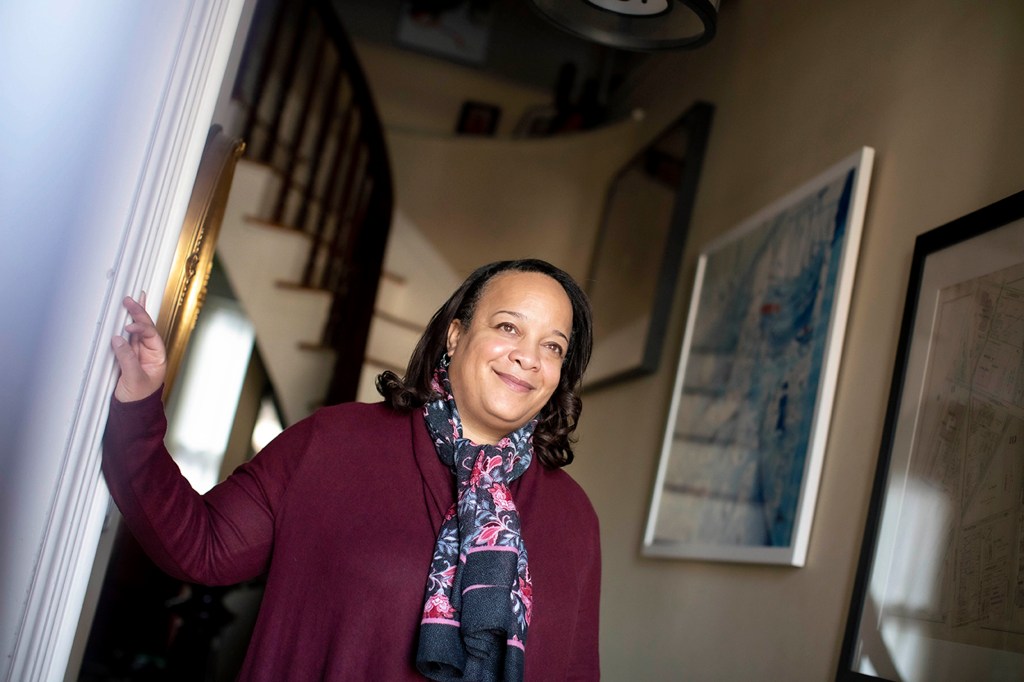
-
Keeping students on campus for their health and safety?
During the influenza pandemic of 1918, Harvard kept students on campus and imposed quarantine and isolation when necessary.
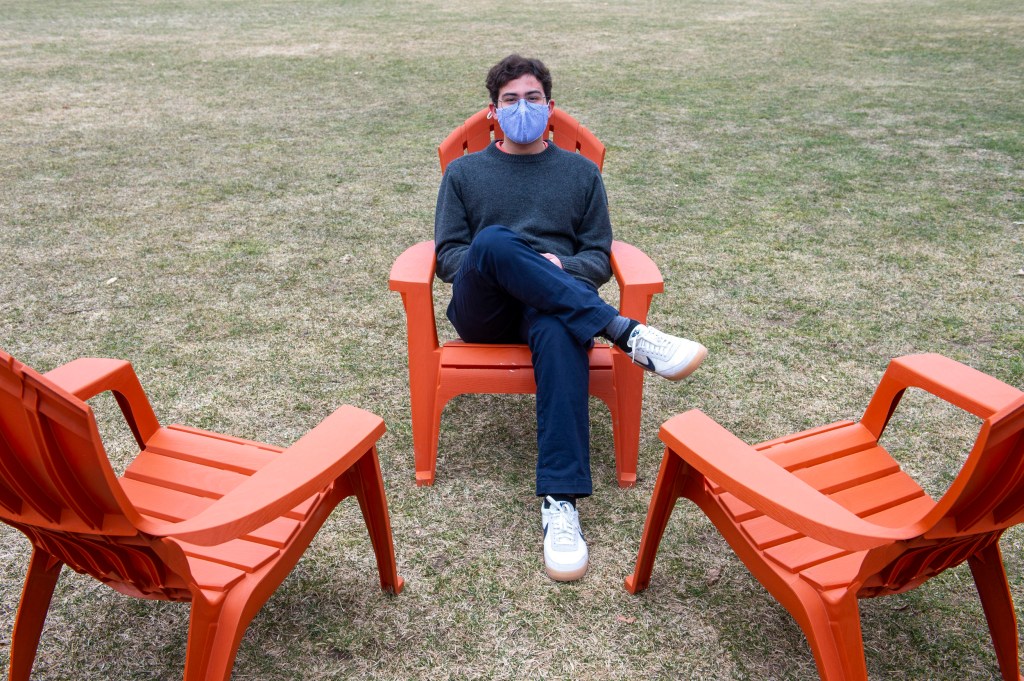
-
The main public health tool during 1918 pandemic? Social distancing
The Gazette looks at the history of social distancing, which, along with masks and vaccines, is still an effective strategy to stem the spread of COVID-19.
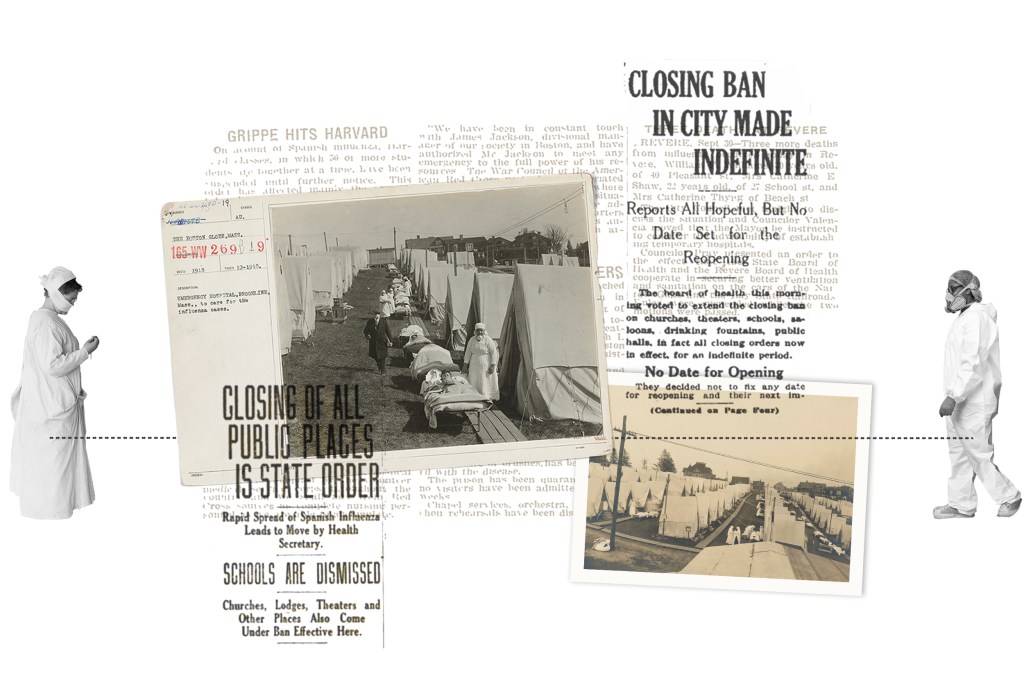
-
COVID-19 vaccine protects mothers — and their newborns
Pregnant women show robust immune response to COVID vaccines, pass antibodies to newborns.
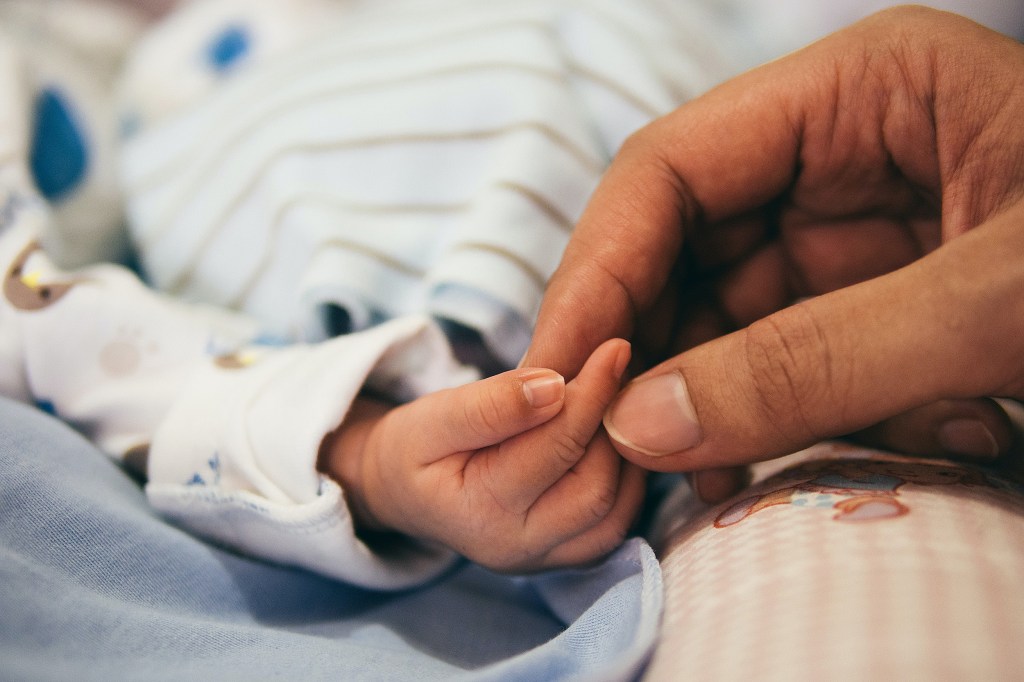
-
Is ‘business as usual’ gone for good?
A recent survey from Harvard Business School Online shows that working online did work. In fact, many professionals even experienced advancement and growth — both on the job and at home — this year.

-
Seeking ‘a leadership moment’ on global vaccination
A $25 billion investment in global vaccines would bring a five-to-one economic return and save many lives, according to Rebecca Weintraub, an HMS global health expert.
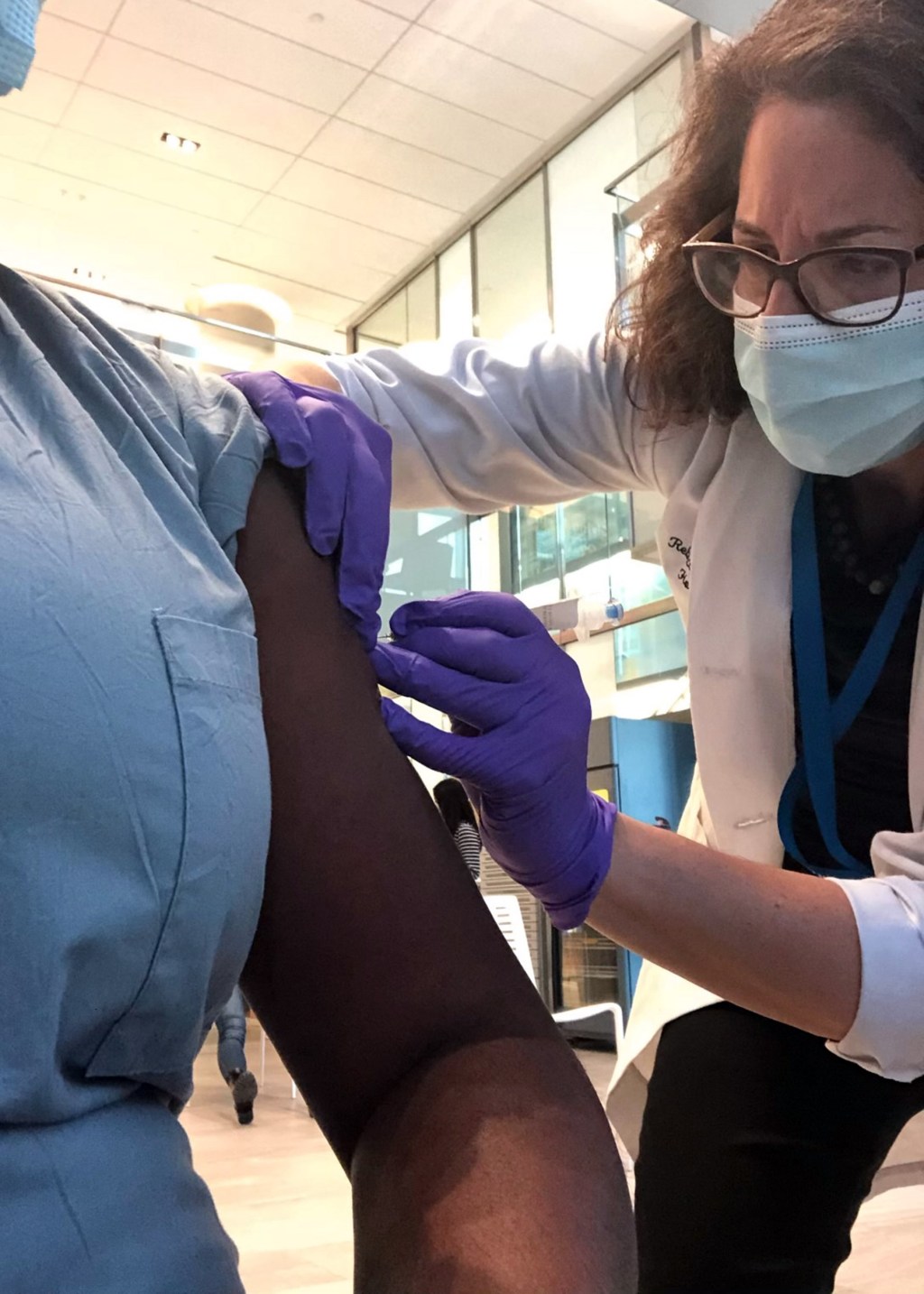
-
The sound of lockdown
Theater, Dance & Media students join Junot Díaz and other writers in an audio version of Radcliffe’s fall magazine.
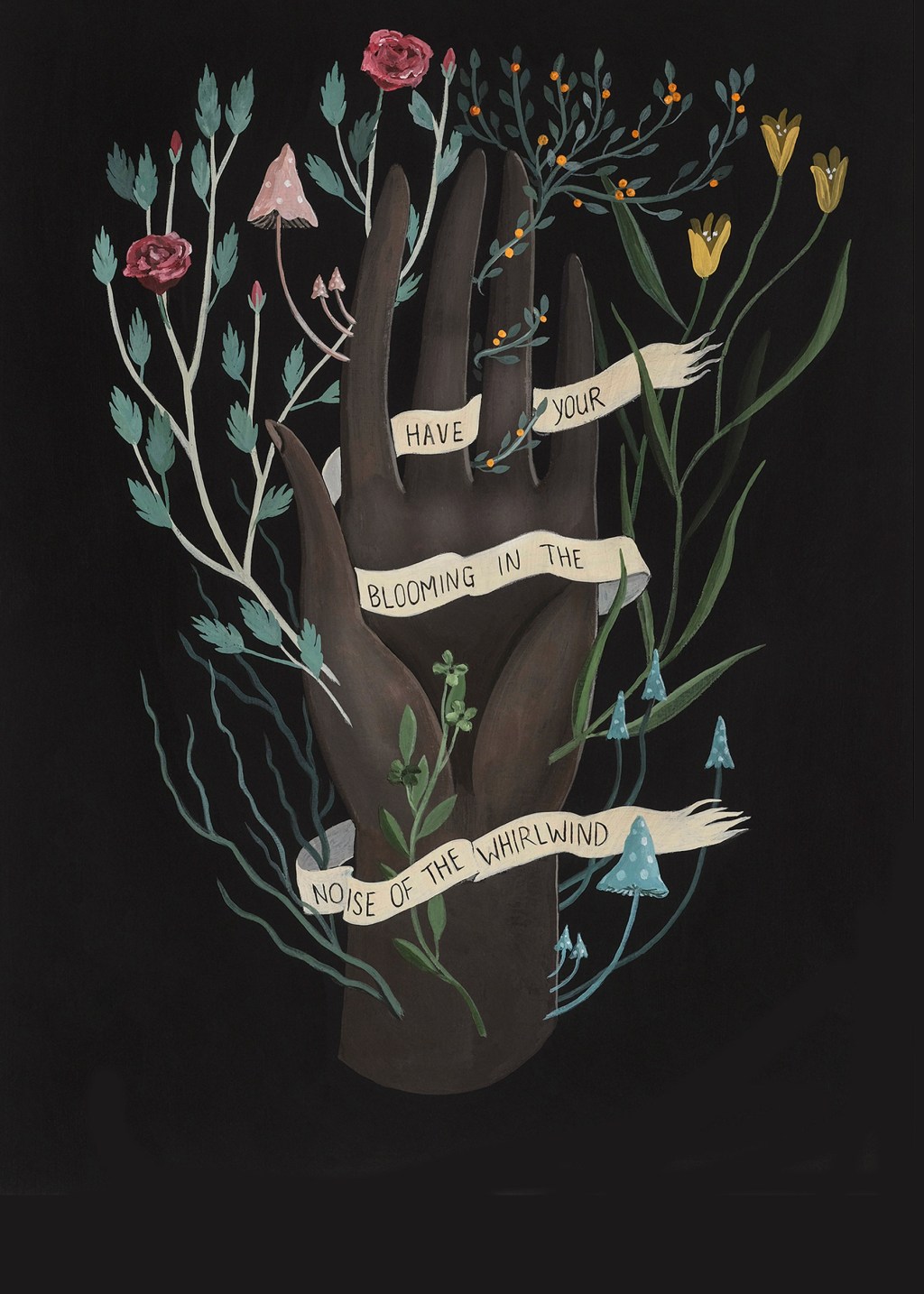
-
How a mutated coronavirus evades immune system defenses
A Harvard Medical School study shows how SARS-CoV-2 mutations allow the virus to evade the defenses of patients with compromised immune systems.
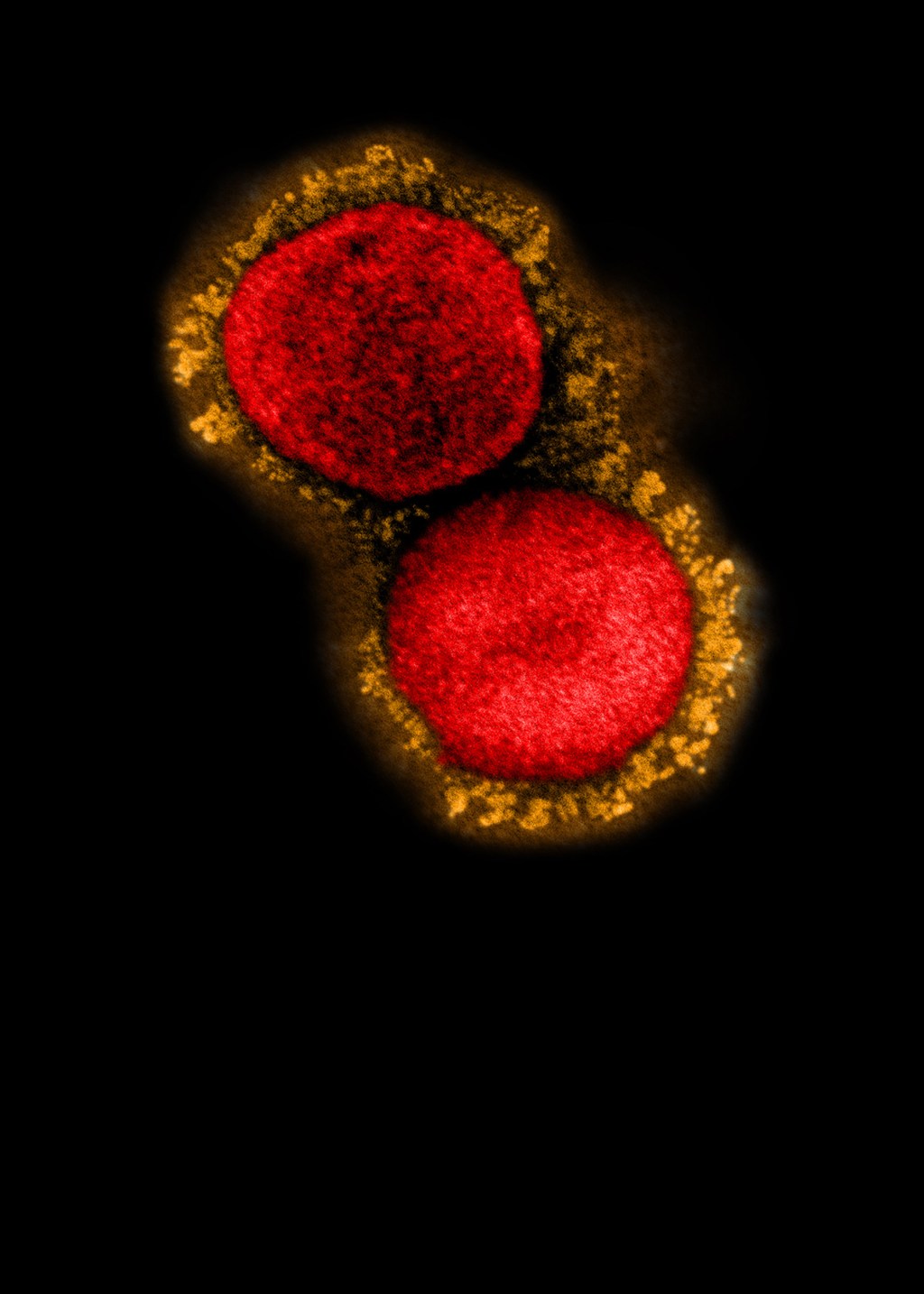
-
Making gifts that keep on giving
Former Navajo Nation Attorney General Ethel Branch ’01, M.P.P. ’08, J.D. ’08, started a GoFundMe campaign to help the Navajo and Hopi communities respond to the coronavirus pandemic. She has raised $18 million.
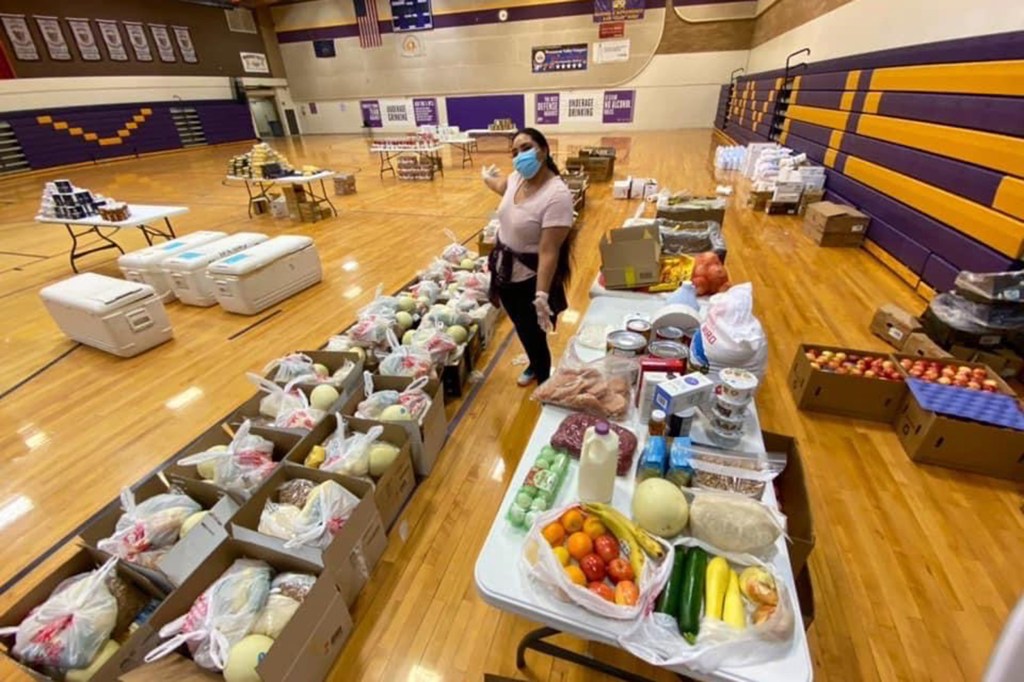
-
Professor, banking giant join on studies of rapid COVID tests to avoid future shutdowns
A new trial seeks to test whether cheap rapid tests given three times a week can keep the workplace safe despite the coronavirus pandemic.
